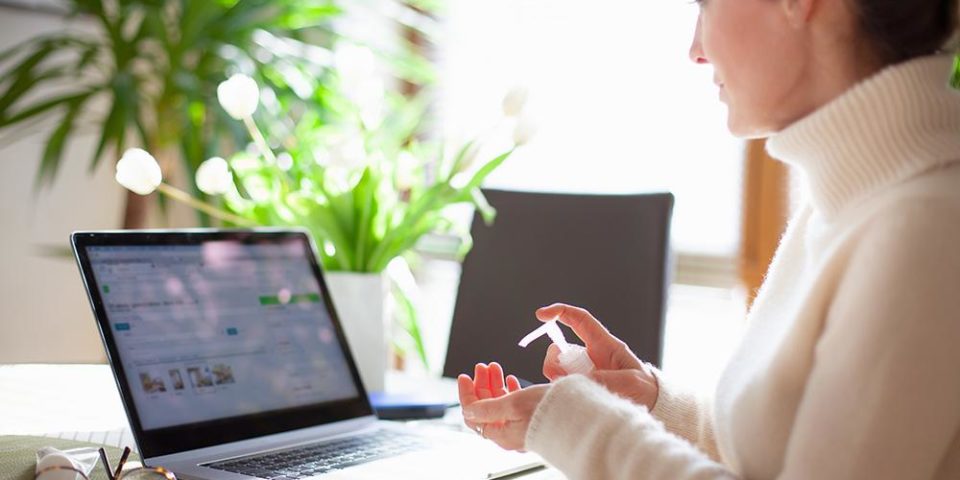How do we reduce the spread of COVID-19?
There are important steps everyone can take now to slow the rapid spread of COVID-19 in the United States. The goal is to “flatten the curve” or prevent hospitals from being overwhelmed by large numbers of patients arriving at the same time.
Joseph T. Garand, MD, Center for Family Medicine–Greer, explained our best options to fight the spread.
Social distancing:
- Stay home during this crisis. If possible, you and every member of your household need to stay home and stay safe.
- Keep 6 feet away from others if you must leave home – this means no handshaking, hugging or touching others and avoiding crowds. Use video to chat with loved ones, work from home, and limit outings to getting groceries and necessities.
- Wear a cloth mask when out in public. While a mask is not a substitute for social distancing, it can be a reminder to avoid touching your face and help reduce exposure risk if you must go out.
- Be aware that touching ANY object, person or animal may expose you to this invisible virus. Wash your hands with soap for 20 seconds often throughout the day and keep hand sanitizer readily available. Avoid touching your face and eyes. Keep tissue handy to cover your coughs or sneezes.
- Restrict visitors in hospitals and homes.
Regularly clean and disinfect all “high-touch” surfaces, which include counters, tabletops, doorknobs, bathroom fixtures, toilets, phones, keyboards and bedside tables.
Self-monitoring: Monitor your temperature and stay alert for typical COVID-19 symptoms (cough, shortness of breath, fatigue, etc.). This is particularly important if you are a healthcare worker or if you are in contact with a person who is higher risk for COVID-19 complications. If you develop symptoms, immediately self-isolate and call your doctor. To minimize potential exposures to COVID-19, Prisma Health offers audio and video telehealth visits or phone consultations directly with your provider.
Quarantine: People who have had significant possible exposure to coronavirus must self-quarantine. The reason is to monitor the course of their illness or to see if they become sick, and mostly to prevent these sick or high-risk individuals from spreading the virus.
To self-quarantine, stay at home AND stay away from other people including your family. Do not go out shopping, eating or socializing. Travelers from high-risk locations such as New York City are asked to self-quarantine themselves for 14 days.
Isolation: Anyone diagnosed with COVID-19 must be isolated from people who are not sick. If instructed to stay home, isolate in your own section of the house, not sharing your bed, your bathroom, or your living space with anyone. Remain isolated until released by your doctor. Wash or sanitize your hands often. Caregivers will need to use personal protective equipment (PPE) including a mask and gloves. If you are diagnosed with COVID-19 and need medical care, call ahead to your doctor’s office, an ER or urgent care center to inform them you are coming, and tell them you have coronavirus.
Get quick care online
Need same-day care for a minor condition such as cold, flu, sore throat or UTI? Get quick, convenient care online with Prisma Health Virtual Care.
Get Care

